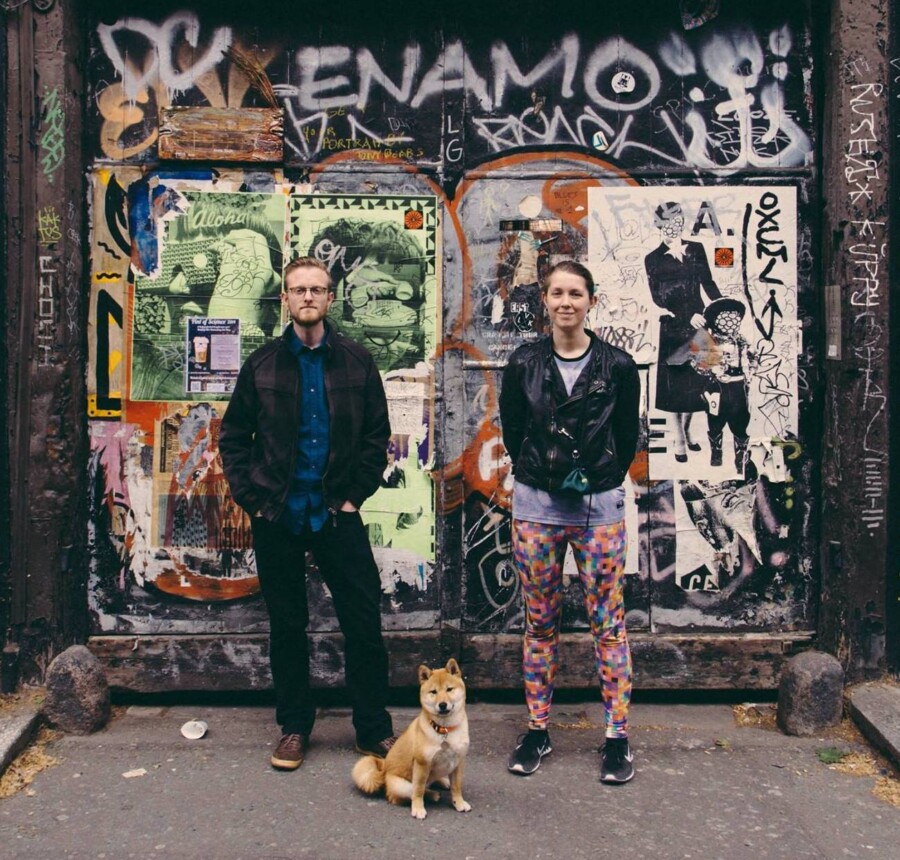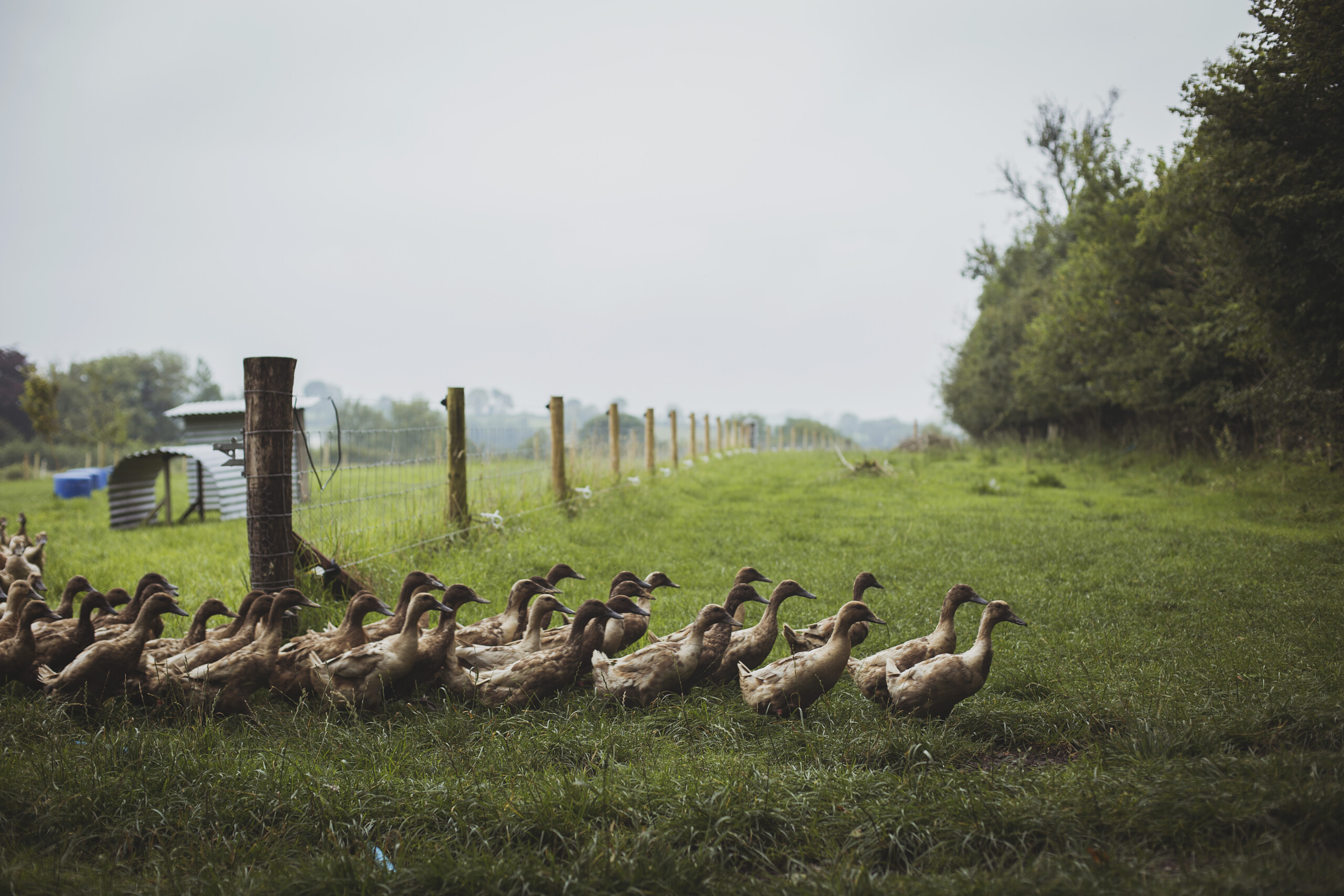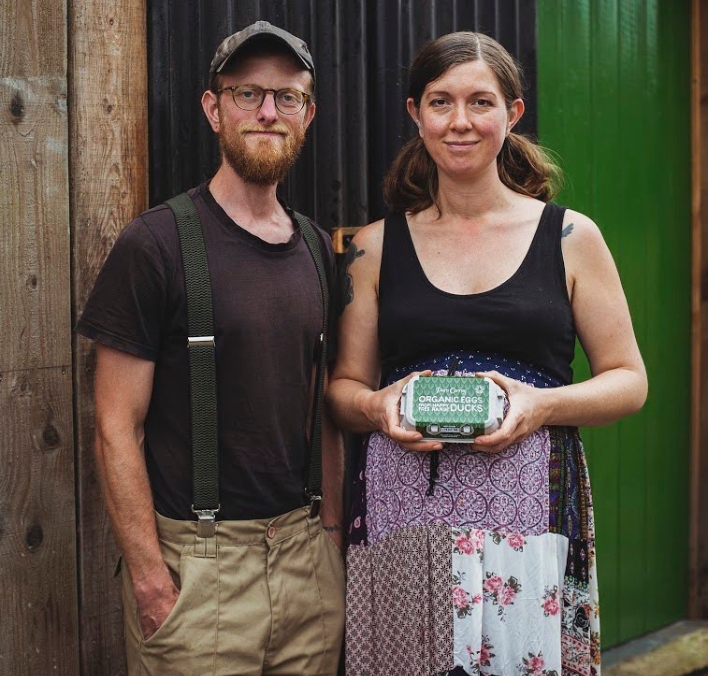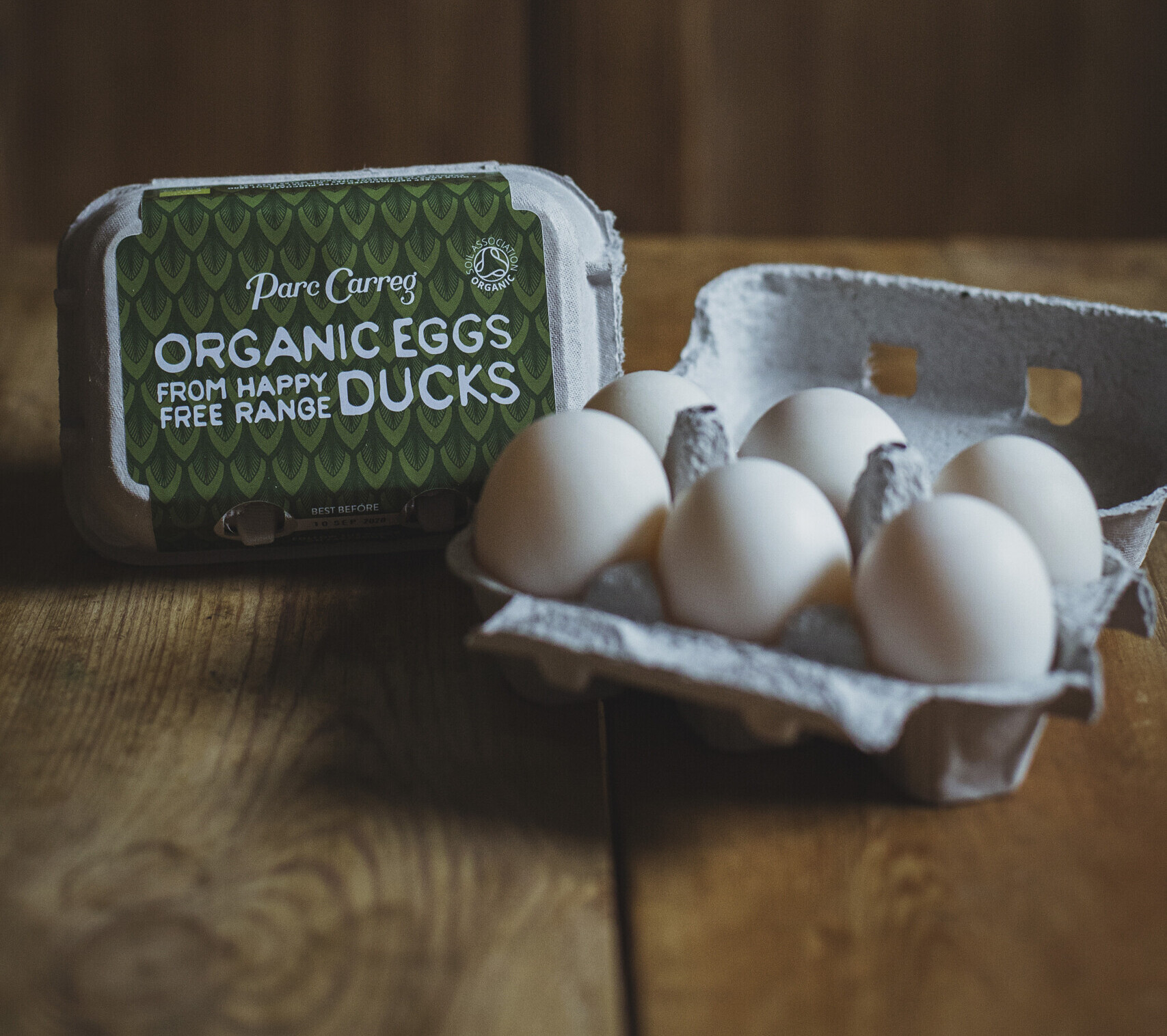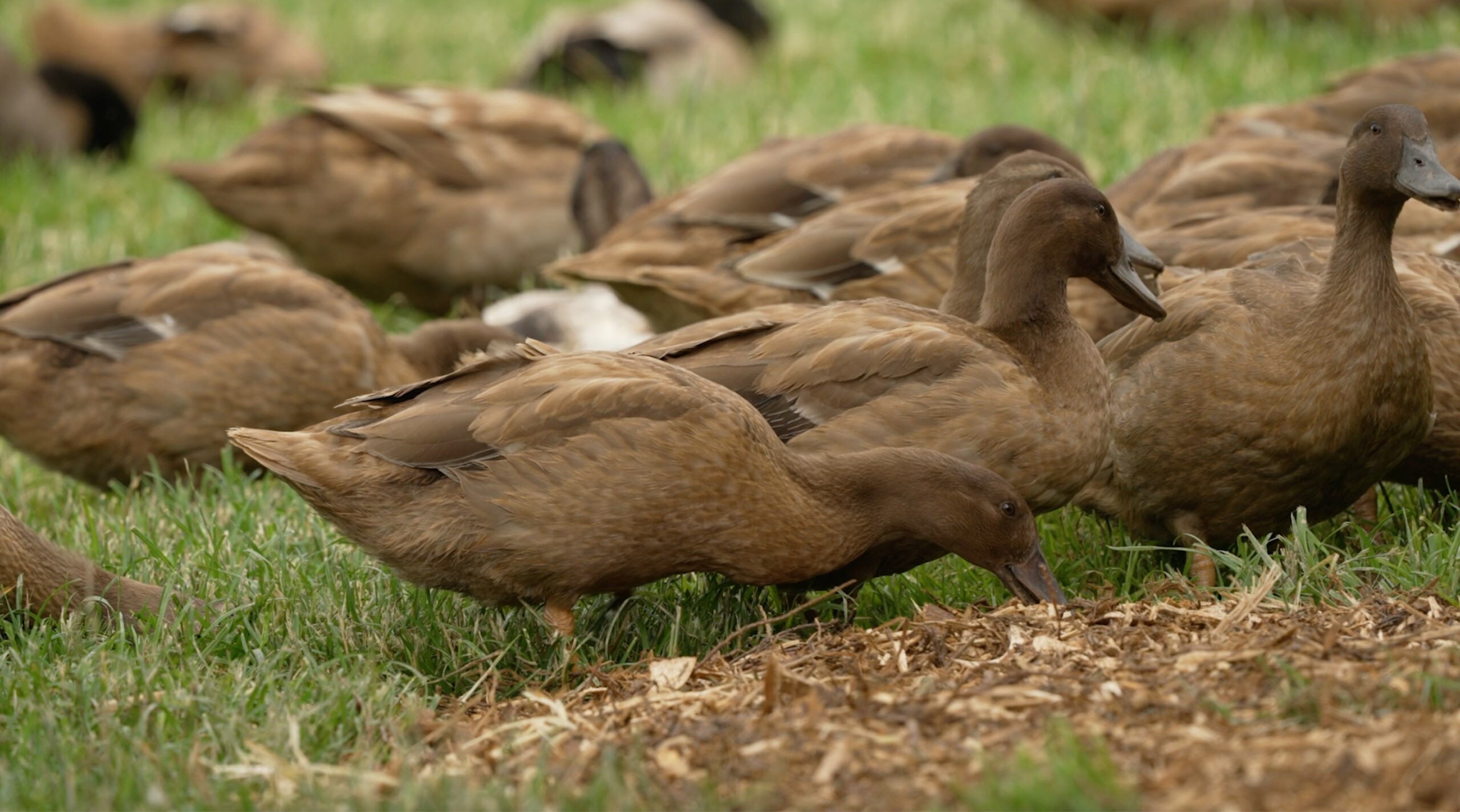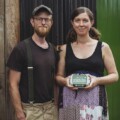Ducks foraging on Parc Carreg
To rebuild our egg business, we would have had to ‘depopulate’ the entire flock, completely sanitise the farm, hatch a whole new flock, vaccinate the new flock, rear them for five months before we could start collecting eggs, re-test for salmonella, and hope for the best, without any guarantees.
So, with great sadness, we decided to close the egg business.
Failure is a powerful teacher: three lessons for recovery
With each challenge we’ve faced, there has been an important lesson or opportunity. Both events felt awful, but they have taught us so much. We have battle scars, but we are very grateful for the learning they bring.
1. Letting go
The salmonella test result ended up being a blessing in disguise – what previously seemed like the worst-case scenario ended up being for the best. After closing the egg business, we felt so much lighter. Our friends and family all commented on how relaxed we looked. We took our daughter to the beach for the first time as a family, two and a half years after her birth.
We had lost sight of how much we were sacrificing – putting our personal needs after the farm and the flock. Had we continued to ‘just about manage’, we could have ended up losing the next seven years of our life to a slow and painful decline in financial and mental health. We needed a break, but our grit had turned into stubbornness.
2. Opening up
Opening up is hard because it can invite criticism, but it also invites opportunity. The support we’ve received since has been more than just financial. We’ve had phone calls, emails and heart-warming comments from people all around the world. We’ve even had a few experts get in touch with us directly to give us advice around some very niche problems that we’ve always struggled to find the answers for.
In the process of trying to communicate our story, we were forced to organise and unpack our thoughts, which was, in itself, therapeutic. The ‘How to Fail at Farming’ videos that we created on YouTube gave us the opportunity to explore some of the lessons we learned in a way that we might not have done otherwise. Sharing our challenges with the world has significantly amplified what we have learned from our experiences and we’re so glad we did.
3. Moving forward
In many ways, our journey has only just begun. We hope to continue our work in regenerative agriculture – just give us a minute. We haven’t entirely figured out how we will do that yet, but we have a lot more experience to draw on now, than we did when we started seven years ago. In fact, when reflecting on the experiences that we have faced so far, it seems that the larger the disaster (or what felt like a disaster at the time), the more meaningful the lessons learned. If we could go back seven years to tell ourselves one thing, it would be: “carry on”!
You can follow Josh and Abi’s journey on YouTube and Instagram.

